On March 17, 2015, the International Potato Center (CIP) launched a robust project the Viable Sweetpotato Technologies for Africa (VISTA) that aims to get OFSP directly into the hands of 25,000 Mozambican households with another 150,000 households indirectly benefitting from improved OFSP varieties and technologies. Investments in research and development over the last few years have generated improved technologies for sweetpotato which have in turn greatly improved nutrition, income and food security.
The 3-year USAID funded “Feed the Future” initiative is being rolled out in collaboration with the Mozambique Agrarian Research Institute (IIAM) and the Government of Nampula.
VISTA aims to disseminate improved varieties of OFSP, conservation technologies for root vines, and behavior change messages that will lead to the increased adoption of OFSP into the local diet in 7 districts in the Zambezia (Gurué and High Molocué) and Nampula (Meconta, Monapo, Murrupula and Nampula-Rapale) provinces. The overall objective is to contribute to improved nutrition, food security and incomes of small-scale farmers and their families through increased production and better use of nutritious varieties of OFSP, especially for those most at risk of VAD. The dissemination of the drought tolerant OFSP will be associated with key messages on nutrition and during the three years of implementation the project. Previous CIP and Feed the Future OFSP interventions in Mozambique led to a 15% drop in VAD levels among small children.
More than 100 event attendees were entertained by a Cultural Group from CLUSA whose bright orange t-shirt mimicked the tell-tale color of OFSP. Among the guests were opening speaker Constantino Cuambe of IIAM; Pedro Zucule, the Provincial Director of Agriculture representing the Government of Nampula province; Feliciano Mazuze, the IIAM Director for Technologies Transfer; Sheryl Stumbras the Deputy Director for USAID Mission in Mozambique and the Tim Born, Director of Agriculture, Trade, and Business (ATB) at USAID-Mozambique.
“CIP will use all its means to achieve the targets of VISTA not only in Mozambique, but also in Malawi, and Tanzania,” Dr. Simon Heck, Sweetpotato Program Leader at CIP said. “Partnership will be essential in our intervention, and that is why CIP is very privileged to work with all project partners in Nampula and in Mozambique in General.”
After the official opening the group toured an exhibition of OFSP products followed by a field trip to a nearby sweetpotato multiplication plot established at PAN (IIAM-Research Station in Nampula) where they witnessed vines being distributed to beneficiaries. ”I am very honoured to be one of the first sweetpotato multipliers in the Nampula region of Mozambique,” said Vieira Sardinha Tuquiua, a DVM Decentralised Vine Multiplier from Murrupula district who has benefited from the work that CIP has done on OFSP in the region. “I look forward to working with CIP to make sure all the farmers around me get the new OFSP varities.”
It was a great event enjoyed by all who attended. See a collection of bright and colourful images from the event below or visit the CIP SSA Flickr site.
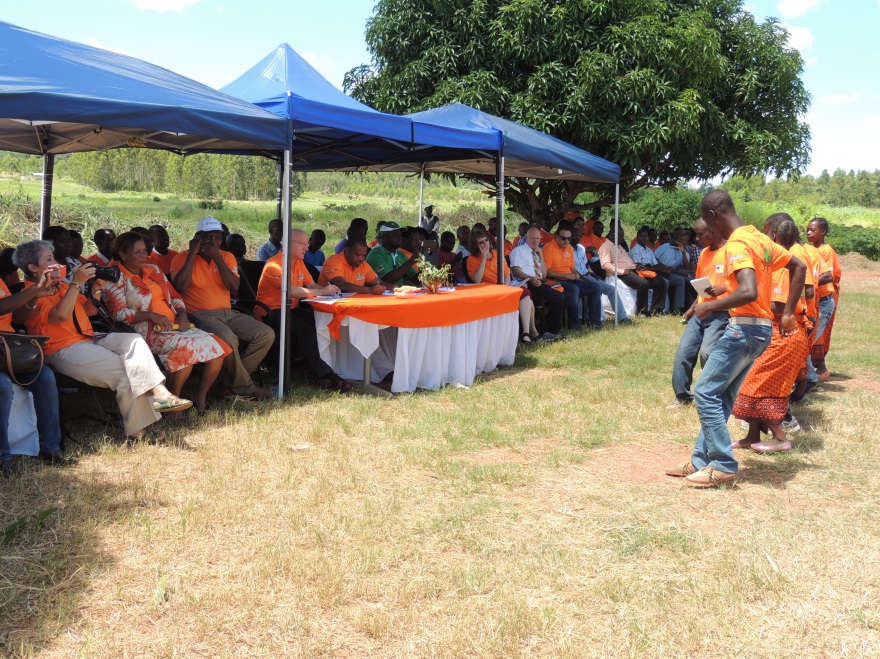
View of the performance of the Cultural Group of CLUSA during the opening of the VISTA launching (credit to B. Rakotoarisoa)
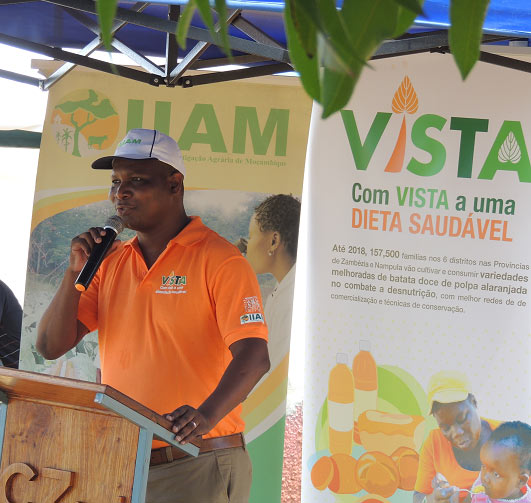
Welcoming remarks by the Director of IIAM-Centro Zonal Nordeste in Nampula, Mr. Constantino Cuambe (credit to B. Rakotoarisoa)
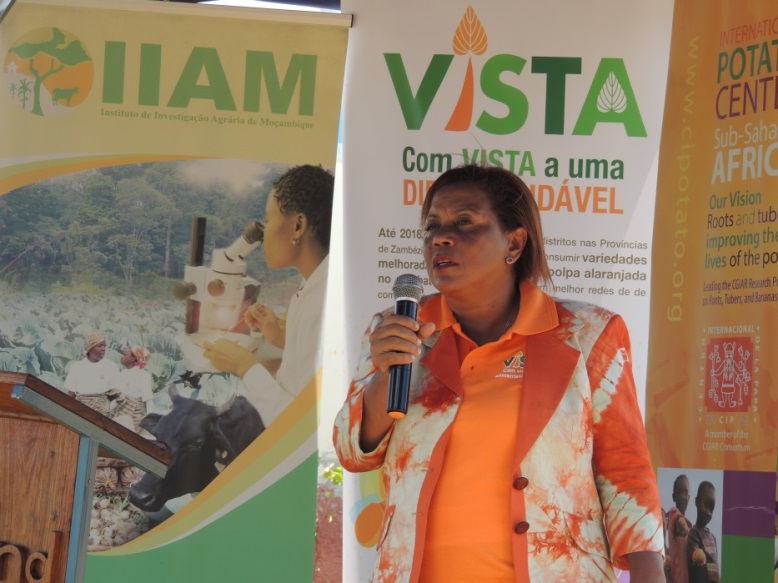
Dr Maria Andrade from CIP-Mozambique during her presentation (credit to B. Rakotoarisoa)
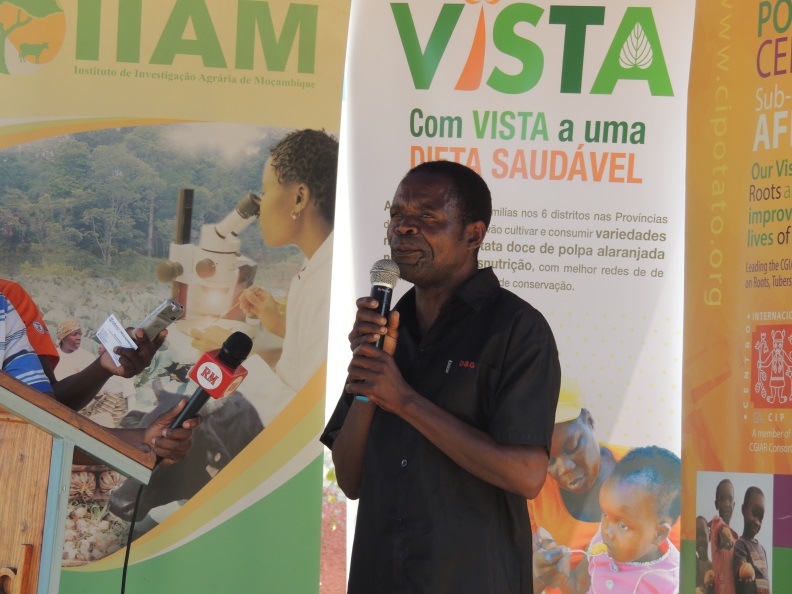
The Decentralised Vine Multiplier Vieira Sardinha Tuquiua from Murrupula district shares his experience in relation to multiplication and distribution of vines (credit to B. Rakotoarisoa)
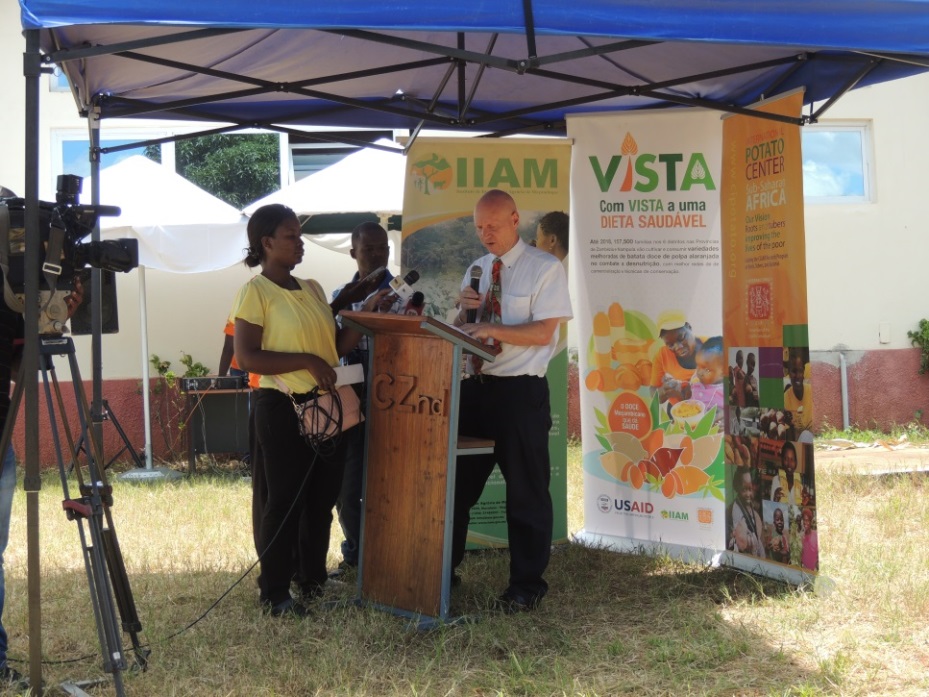
Mr Tim Born, from the USAID Mission in Mozambique (credit to B. Rakotoarisoa)
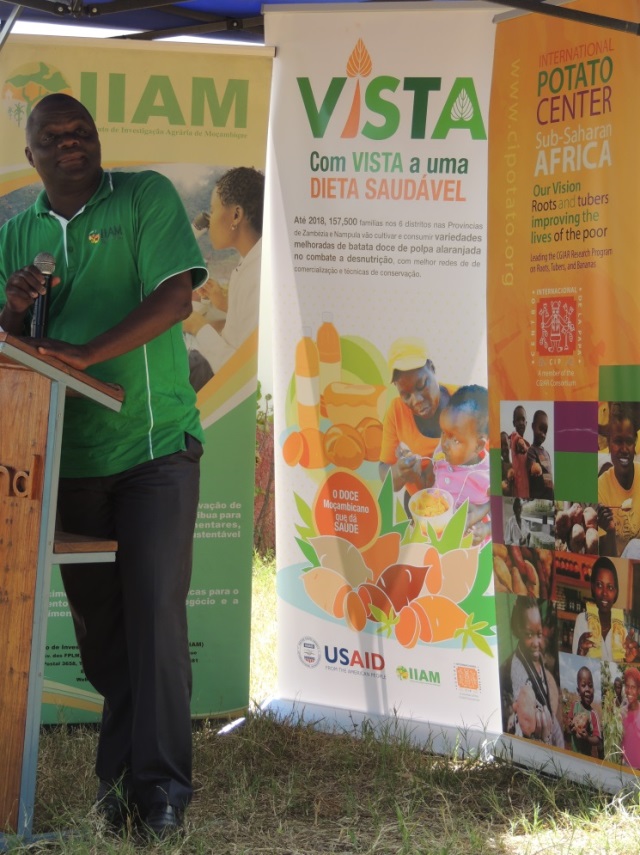
Mr Feliciano Mazuze, speaking on behalf of DG of IIAM (credit to B. Rakotoarisoa)
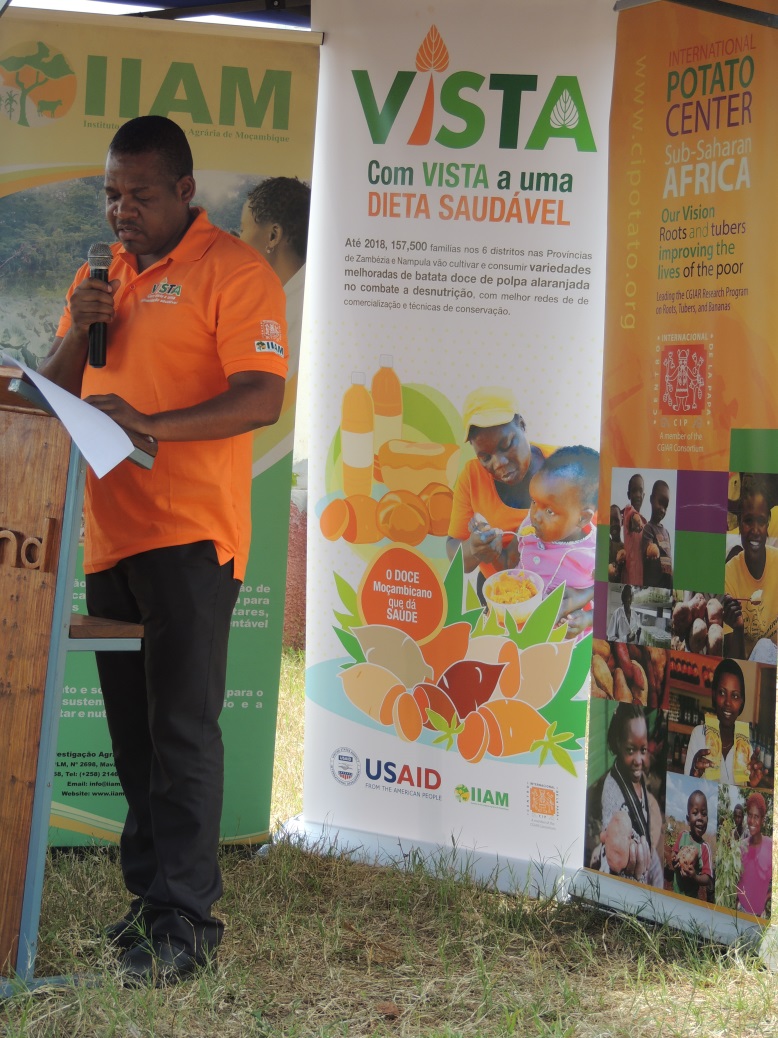
Mr Pedro Zucula, the representative of the Government of Nampula and the Ministry of Agriculture who officially proclaimed the VISTA-Mozambique launched (credit to B. Rakotoarisoa)
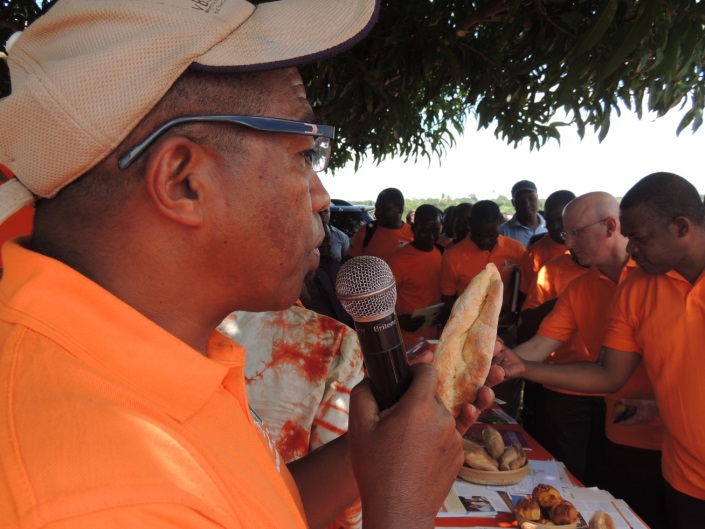
Display of OFSP technologies (credit to B. Rakotoarisoa and Abdul Naico)
